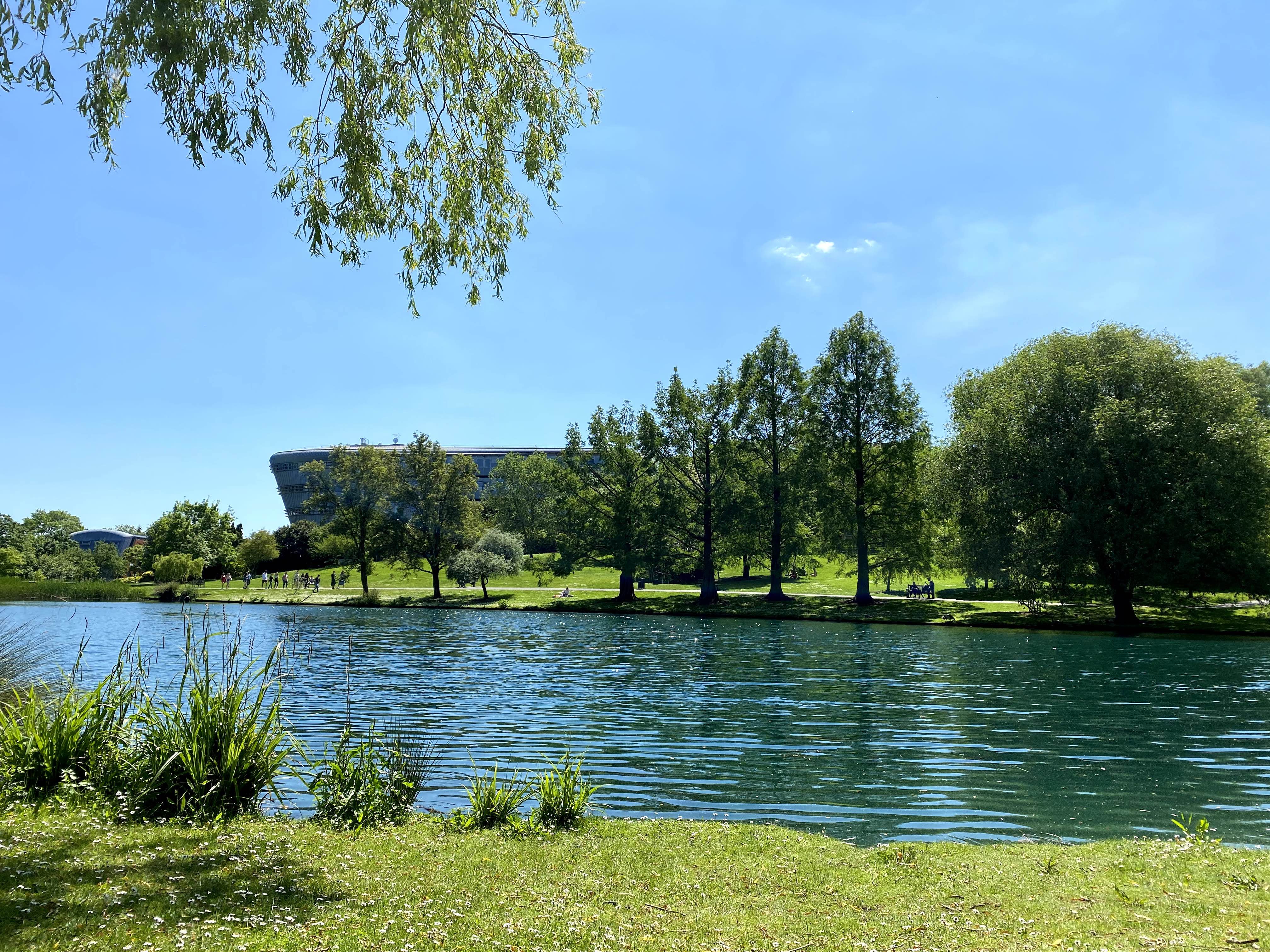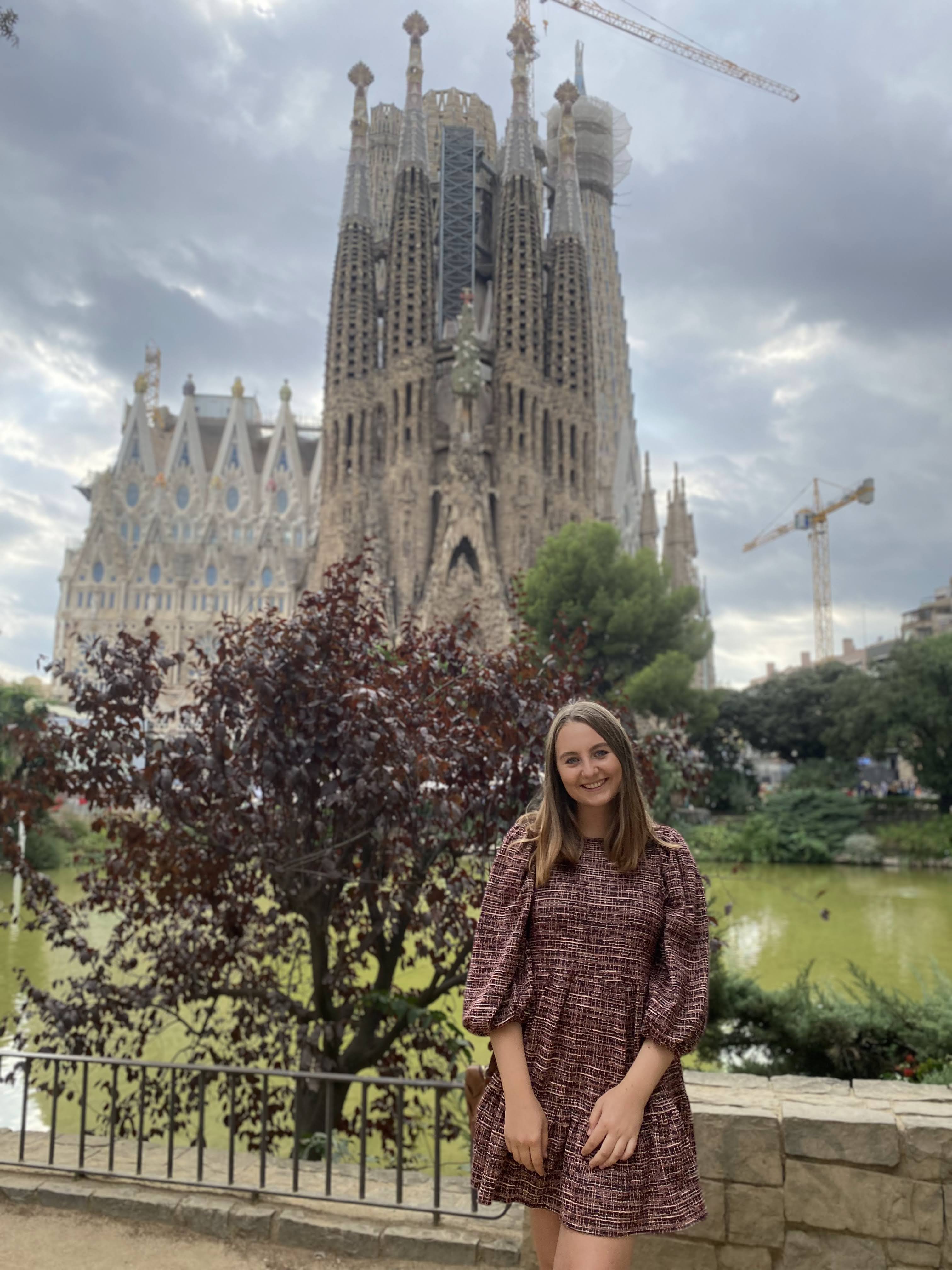There’s only six weeks of scheduled lectures left of my entire degree, yet it feels like yesterday that I was writing my personal statement and awaiting my A Level results. University has been a whirlwind but I’d have had it no other way.

Studying languages at Surrey has been the best decision I’ve made. I’ve enjoyed being able to choose from a huge range of practical modules each semester, including translation, sociolinguistics, history, culture and professional training. The degree has been very manageable too, with plenty of time to attend classes across four modules per semester; typically we had around 12 contact hours in first year, 8 hours in second year and 6 hours as well as a dissertation in final year. Most students are able to pick up a part-time job and join clubs and societies around these contact hours, too.
When I think back to weighing up universities and deciding on my firm and insurance choices, there were so many reasons as to why I chose Surrey. Admittedly, it was never my top choice until I came to visit on an open day, when my view changed forever. I toured the campus and saw the beautiful lake for the first time; I adored the way that nature still surrounds the modern architecture of the university and casts a peaceful ambiance over the campus. From that point on, I knew that Surrey was where I needed to be.
Secondly, I had my mind set on studying translation regularly throughout my degree and the module choice at Surrey provides countless brilliant translation modules to choose from, including creative translation! It was really important to me that I would finish university having developed practical and useful skills – skills that would allow me to pursue a masters, or continue my education in translation studies.
I was also very aware of the importance of the placement year when studying languages, so I knew I wanted to study at a university with a great reputation for placement opportunities. Surrey rank first place for placements nationwide! This made me even more confident that studying at Surrey was the best option for me.

La Sagrada Familia, Barcelona
On the topic of placement year, I was lucky enough to spend a semester studying at one of Surrey’s partner universities, Universitat Jaume I, just north of Valencia, Spain. I chose a range of modules: physical geography, tourism, medical translation, and dubbing, which provided a great opportunity to explore potential future pathways for after graduation. Not only were my classes a change, but my life outside of university was completely different to Guildford; I’ll never get used to the idea of spending every spare moment on the beach, swimming in the sea, and sunbathing with new friends. The lifestyle was so peaceful and relaxing!
The second part of my placement year was spent in Paris, France, where I worked as an HR Assistant and supply teacher for a company called Language Connexion. It was interesting to have that comparison to the chilled beach life in Spain, and to be back in a big city with lots going on. I made the most amazing group of friends at work, who I spent most of my weekends and evening travelling and exploring Paris with!
As I mentioned before, Surrey ranks first nationwide for placement years and one of the reasons for this would be the incomparable support that students receive during their time in industry/semester abroad/work abroad! Our personal tutor (mentor assigned at the start of university to support and guide us throughout our university career) will continue their support and guidance throughout the placement year, and offer virtual meetings whenever they are needed. In addition, we have placement tutors who visit us while we are on placement!
Top tips for studying languages at University:
- Get as much exposure to the language as possible, whether that’s by reading books, watching films, listening to music/podcasts, doing language exchanges or joining language societies. Just make sure you are listening and using your language regularly!
- Make the most of the free GGA language classes at Surrey; many language students take part in the extra free classes to keep up the practice, and you’ll get extra credits at the end of it!
- Start researching and organising for your placement year at least one year in advance to make sure you have enough time to secure placements and visas!
